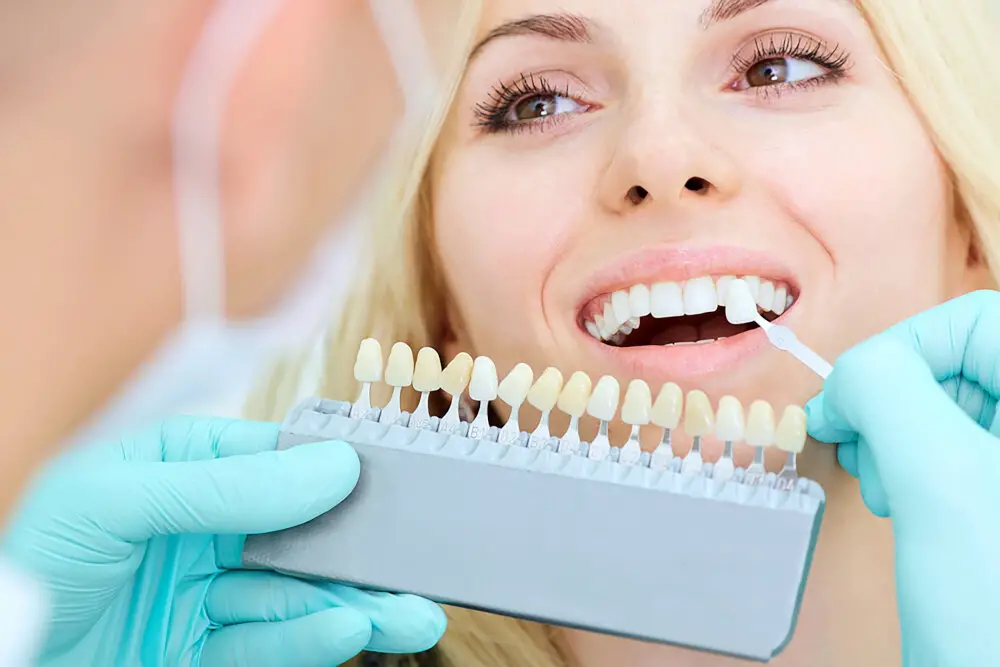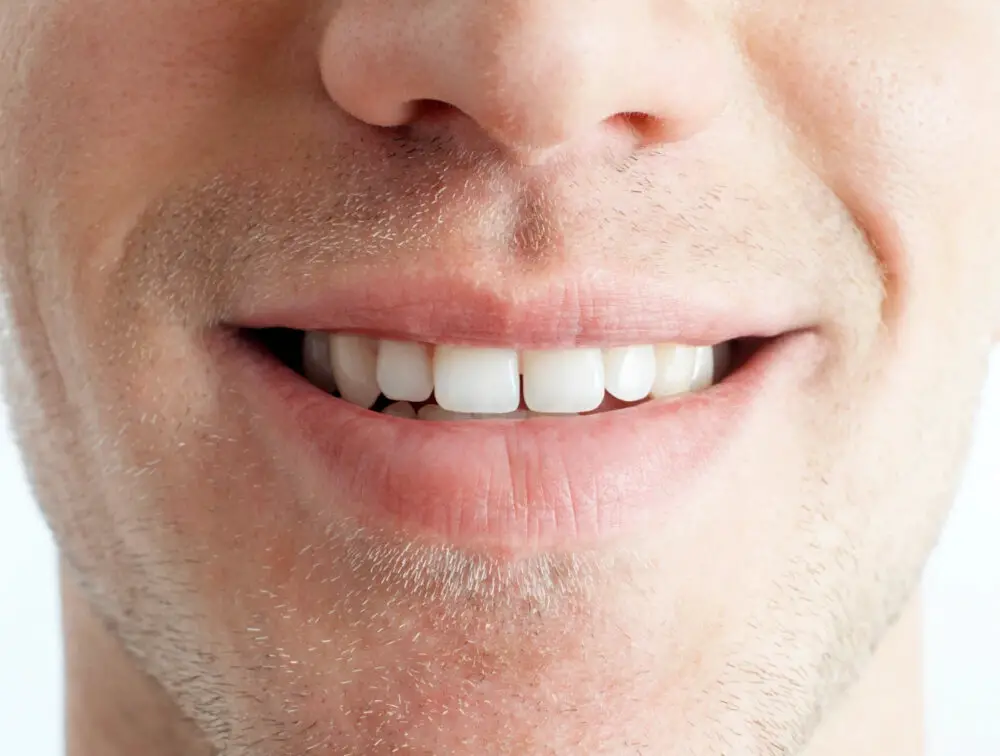Why Small Teeth Are More Common Than You Think: Causes and Solutions

Small teeth can be a source of frustration for many people, causing them to feel self-conscious and insecure about their smile. While it may seem like a rare occurrence, small teeth are actually more common than you might think. There are several factors that can contribute to the development of small teeth, including genetics, poor dental hygiene, and certain medical conditions. Fortunately, there are also a variety of solutions available to help address this issue and improve the appearance of your smile. One of the most common causes of small teeth is genetics. If your parents or other family members have small teeth, there is a good chance that you may inherit this trait as well. Additionally, poor dental hygiene can also contribute to the development of small teeth. Failure to brush and floss regularly can lead to tooth decay and gum disease, which can cause teeth to become smaller over time. Certain medical conditions, such as hormonal imbalances and malnutrition, can also impact the size and shape of your teeth. Understanding the underlying causes of small teeth is an important step in finding the right solution for your individual needs.
Small teeth are more common than you might think, and there are several reasons why this is the case. One of the main factors is genetics, as tooth size is largely determined by the genes we inherit from our parents. Additionally, environmental factors such as poor nutrition during childhood can also contribute to smaller teeth. Other factors that can lead to small teeth include dental diseases such as tooth decay and gum disease, as well as certain medical conditions that affect tooth development. While small teeth may be a cosmetic concern for some, they can also lead to functional issues such as difficulty biting and chewing. Fortunately, there are several solutions available to help address small teeth, including orthodontic treatments and dental restorations such as veneers and crowns.
Dental health is an essential aspect of overall well-being. Neglecting oral hygiene can lead to various dental problems such as cavities, gum diseases, bad breath, and tooth loss, which can affect a person’s self-esteem and quality of life. Maintaining good dental hygiene involves brushing and flossing regularly, avoiding sugary foods and drinks, and visiting the dentist regularly for check-ups. It is crucial to address dental issues as soon as possible to prevent them from worsening. Moreover, good dental health can also have a positive impact on a person’s general health, as several studies have linked poor oral health to various systemic diseases, including heart disease, stroke, and diabetes. Therefore, it is crucial to prioritize dental health and take preventive measures to maintain healthy teeth and gums.
Causes of Small Teeth

Small teeth are a common dental issue that affects many people worldwide. There are several reasons why individuals may have small teeth. Genetics plays a significant role in determining tooth size, and some people may have inherited small teeth from their parents. Additionally, poor oral hygiene practices, such as not brushing or flossing regularly, can lead to tooth decay and loss. This can result in smaller teeth, as well as other oral health problems such as gum disease and bad breath. Another cause of small teeth is malnutrition during childhood. The lack of proper nutrients, especially calcium, can lead to weak and brittle teeth. This can result in smaller teeth, as well as other dental problems such as tooth decay and sensitivity. Other factors such as a history of bruxism or grinding of the teeth, trauma to the mouth, or a misaligned jaw can also cause small teeth. Therefore, it is essential to maintain good oral hygiene and a healthy diet to prevent dental issues and ensure strong, healthy teeth.
Genetics plays a significant role in determining the size and shape of our teeth. Inheriting genes from our parents can lead to variations in tooth size, including smaller teeth. For example, some people may have a genetic mutation that affects the development of their teeth, leading to smaller than average teeth. Additionally, certain genetic conditions, such as ectodermal dysplasia, can impact tooth development and result in smaller teeth. However, genetics is not the only factor that influences tooth size. Environmental factors, such as nutrition and oral hygiene, can also play a role. Therefore, it is important to take care of our teeth and visit a dentist regularly to ensure proper oral health.
Nutritional deficiencies can be one of the leading causes of small teeth. A lack of essential vitamins and minerals, such as calcium, phosphorus, and vitamin D, can hinder the development of teeth and bones. In particular, calcium and phosphorus are crucial for building strong teeth, and a deficiency in these minerals can lead to enamel hypoplasia, a condition where the enamel is thin and prone to decay. Vitamin D, on the other hand, is essential for the body to absorb calcium effectively. Without adequate amounts of this vitamin, the body cannot utilize calcium, which can negatively affect the growth and development of teeth. Therefore, it is essential to maintain a balanced and nutritious diet to ensure the proper development of teeth and prevent nutritional deficiencies.
Childhood illnesses are common and can affect children of all ages. Some of the most common childhood illnesses include chickenpox, measles, mumps, and rubella. These illnesses can be caused by viruses or bacteria and can spread easily through contact with infected individuals. Symptoms of childhood illnesses can range from mild to severe and can include fever, cough, rash, and fatigue. While many childhood illnesses can be prevented through vaccination, it is important for parents to be aware of the signs and symptoms of these illnesses and to seek medical attention if their child becomes sick. With proper care and treatment, most childhood illnesses can be managed and children can return to their normal activities.
When it comes to the causes of small teeth, medication is one factor that often goes overlooked. Certain medications can interfere with dental development, leading to teeth that are smaller than average. For example, antibiotics like tetracycline and doxycycline can cause discoloration and weaken tooth enamel. Chemotherapy drugs can also have a negative impact on dental health, affecting both the size and quality of teeth. Additionally, some medications used to treat conditions like ADHD and depression may cause dry mouth, which can contribute to tooth decay and other oral health issues. It’s important to speak with your healthcare provider and dentist if you’re taking any medications that may affect your dental health.
While small teeth may seem like a purely cosmetic issue, they can actually be the result of trauma. Trauma to the mouth can occur from a variety of sources, such as a fall or a car accident, and can cause damage to the developing teeth. This damage can lead to smaller teeth with shorter roots, which can result in a weaker tooth structure and increased risk of tooth decay and gum disease. In some cases, trauma can even cause the tooth to die, requiring a root canal or even extraction. It is important to seek prompt dental treatment after any kind of mouth trauma to minimize the potential long-term effects on dental health.
Effects of Small Teeth

Small teeth are a common dental issue that affects many people worldwide. While the reasons for small teeth can vary from genetics to poor dental hygiene, the effects of this condition can be significant. One of the most notable effects of small teeth is that they can make a person’s smile less aesthetically pleasing. When teeth are too small, they can cause an imbalance in the overall look of a person’s face, making them feel self-conscious and embarrassed about their appearance. Another effect of small teeth is that they can lead to dental health problems. When teeth are too small, they can create spaces between them, which can make it easier for food particles and bacteria to become trapped. This, in turn, can lead to tooth decay and gum disease, which can cause pain, discomfort, and even tooth loss. Additionally, small teeth can make it difficult to chew food properly, which can lead to digestive problems and malnutrition. Therefore, it is essential to seek dental treatment for small teeth to avoid these potential health consequences.
Difficulty in chewing and speaking is a common issue faced by individuals with small teeth. The size of teeth plays a crucial role in the overall oral health and functionality of an individual. Small teeth can lead to improper alignment of the jaw, causing difficulty in biting and chewing food. This can lead to digestive problems and malnutrition. Moreover, small teeth can also affect the clarity of speech, causing difficulty in pronunciation and articulation. However, there are several solutions available to overcome these issues, including orthodontic treatment, dental implants, and veneers. These treatments can help improve the appearance, functionality, and overall oral health of individuals with small teeth.
Self-consciousness is a complex and often debilitating state of mind that can arise from a variety of causes. In the context of dental health, individuals with small teeth may experience self-consciousness due to the perceived aesthetic implications of their condition. This can manifest as a lack of confidence in social situations, avoidance of smiling or speaking in public, and even feelings of shame or inadequacy. However, it is important to remember that small teeth are a common occurrence and do not reflect an individual’s worth or value as a person. By seeking out appropriate dental care and working to cultivate a positive self-image, those who experience self-consciousness related to their teeth can learn to embrace their unique qualities and feel comfortable in their own skin.
Small teeth can lead to an increased risk of tooth decay and gum disease. This is because individuals with smaller teeth often have less enamel and a smaller surface area for cleaning, making them more susceptible to plaque buildup and subsequent dental problems. Additionally, small teeth can create crowded or misaligned teeth, which can make brushing and flossing more difficult. These challenges in oral hygiene can result in the accumulation of harmful bacteria and tartar, ultimately leading to decay and gum disease. Therefore, it is important for individuals with small teeth to pay close attention to their dental health and work with their dentist to develop a personalized oral hygiene plan.
Solutions for Small Teeth

Small teeth can be a source of insecurity for many people. Fortunately, there are several solutions available to help improve the appearance of small teeth. One option is dental bonding, which involves applying a tooth-colored resin to the surface of the teeth and then shaping and polishing it to match the surrounding teeth. This is a relatively quick and cost-effective solution that can be completed in a single dental visit. Another option is dental veneers, which are thin shells that are custom-made to fit over the front surface of the teeth. Veneers can be used to address a variety of cosmetic concerns, including small teeth, and can provide a natural-looking and long-lasting solution. In some cases, orthodontic treatment may be recommended to address small teeth. Braces or clear aligners can be used to gently move the teeth into a more ideal position, which can help to create the illusion of larger teeth. If the small teeth are caused by excessive gum tissue, a gum lift procedure may be recommended to remove the excess tissue and expose more of the tooth surface. Ultimately, the best solution for small teeth will depend on the individual’s specific needs and goals, and a consultation with a qualified dental professional is the best way to determine the most appropriate treatment plan.
Orthodontic treatment is a specialized branch of dentistry that focuses on correcting misaligned teeth and jaws. The most common type of orthodontic treatment involves the use of braces, which are typically made of metal wires and brackets that are attached to the teeth. The braces apply pressure to the teeth over time, gradually moving them into the desired position. In addition to traditional braces, there are other options for orthodontic treatment, such as clear aligners and lingual braces. These options can be more discreet than traditional braces and may be more suitable for certain individuals. Orthodontic treatment is important not only for cosmetic reasons but also for improving oral health and overall well-being.
Cosmetic dentistry is an innovative and effective solution for those who are unhappy with their smile. From teeth whitening to veneers, cosmetic dentistry offers a range of treatments that can enhance the appearance of your teeth and boost your self-confidence. Whether you have small teeth, gaps, or discoloration, a cosmetic dentist can help you achieve the perfect smile. With the latest technology and techniques, cosmetic dentistry is becoming more accessible and affordable than ever before. So, if you’re looking to transform your smile and regain your confidence, cosmetic dentistry may be the solution you’ve been searching for.
Dental implants are an effective solution for tooth loss caused by various reasons, including small teeth. They are artificial tooth roots that are surgically placed into the jawbone to support a replacement tooth or bridge. Dental implants are made of biocompatible materials such as titanium and are highly durable and long-lasting. They provide a permanent solution for missing teeth and can improve the appearance, function, and overall oral health of patients. Dental implants require proper care and maintenance, including regular dental check-ups, brushing, and flossing. Patients with small teeth who have lost one or more teeth should consider dental implants as a viable option for restoring their smile and confidence.
Proper oral hygiene is crucial in maintaining healthy teeth and gums. It involves a combination of daily practices such as brushing, flossing, and rinsing with mouthwash. Brushing should be done twice a day, using a fluoride toothpaste and a soft-bristled brush. Flossing is also necessary to remove food particles and plaque from between teeth. Rinsing with mouthwash can help kill bacteria that cause bad breath and gum disease. In addition to these practices, it’s important to limit sugary and acidic foods and drinks, as they can erode tooth enamel. Regular visits to the dentist are also essential for preventing and treating any oral health issues. By following a proper oral hygiene routine, individuals can reduce their risk of developing small teeth and other dental problems.
Prevention of Small Teeth

Small teeth are a common dental issue that affects many people. Several factors contribute to this problem, including genetics, poor oral hygiene, and certain medical conditions. However, there are steps you can take to prevent small teeth and maintain good dental health. Maintaining good oral hygiene is essential in preventing small teeth. Brushing your teeth twice daily with fluoride toothpaste, flossing daily, and using mouthwash can help prevent tooth decay and gum disease. Additionally, regular dental check-ups are crucial for detecting and treating dental problems early on. A balanced diet rich in calcium and other essential nutrients can also help strengthen teeth and prevent cavities. Avoiding sugary and acidic foods and drinks can further reduce the risk of dental decay. Finally, avoiding bad habits such as smoking and excessive alcohol consumption can improve overall dental and oral health and reduce the risk of small teeth. By following these preventive measures, you can maintain good dental health and prevent small teeth. In conclusion, small teeth are a common dental issue that can be prevented with good oral hygiene, a healthy diet, and regular dental check-ups. By taking care of your teeth and avoiding bad habits, you can maintain healthy teeth and gums and prevent dental problems such as small teeth. Remember, prevention is always better than treatment, and taking these preventive measures can help you avoid the discomfort and expense of dental problems down the road. So, take good care of your teeth, and they will take care of you for years to come.
Proper nutrition is crucial for maintaining healthy teeth and preventing dental issues such as small teeth. A balanced diet rich in vitamins and minerals, particularly calcium and vitamin D, is essential for strong teeth and bones. Avoiding sugary and acidic foods and drinks can also help prevent tooth decay and erosion. Additionally, drinking plenty of water can help rinse away food particles and bacteria from the mouth. In cases where a genetic factor may be causing small teeth, a dentist may recommend supplements or other dietary changes to support optimal tooth development. By prioritizing nutrition and adopting healthy eating habits, individuals can improve their overall dental health and reduce the risk of small teeth and other dental issues.
Regular dental checkups are crucial in maintaining good oral health, preventing tooth decay, and identifying any small teeth issues before they become more severe. Some of the common small teeth causes include genetics, improper dental care, and poor nutrition. Regular checkups enable a dentist to diagnose and treat any dental issues early, preventing them from worsening and causing more significant problems. During the appointment, the dentist will examine your teeth, gums, and mouth to check for any signs of decay, infection, or other issues that may be contributing to small teeth. They may also recommend preventive measures such as fluoride treatments or dental sealants to help protect your teeth from future decay. By scheduling regular checkups with your dentist, you can ensure that your teeth remain healthy and beautiful, and avoid the need for more extensive and costly dental treatments down the line.
Avoidance of harmful habits is crucial for maintaining good oral health and preventing the development of small teeth. Habits such as smoking, excessive consumption of sugary and acidic foods and beverages can lead to erosion of tooth enamel and gum disease, which can ultimately cause teeth to become smaller in size. Regular brushing and flossing, along with routine dental checkups, can prevent the accumulation of plaque and tartar, which can also contribute to tooth decay and small teeth. Additionally, wearing a mouthguard during contact sports or high-impact activities can protect teeth from trauma that can cause them to chip or break, leading to smaller teeth over time. By adopting healthy habits and taking care of one’s oral health, individuals can reduce their risk of developing small teeth and maintain a healthy smile for years to come.
Small teeth are a common dental problem that affects many people worldwide. The causes of small teeth can be genetic, as well as environmental factors such as poor nutrition or childhood illness. The effects of small teeth can be significant, including speech impediments, difficulty eating, and a lack of confidence in one’s appearance. However, solutions to this problem are available, including dental bonding, veneers, and orthodontic treatment. Prevention is also crucial in avoiding small teeth, and it involves maintaining good oral hygiene, eating a balanced diet, and visiting the dentist regularly. By understanding the causes, effects, solutions, and prevention methods of small teeth, individuals can take the necessary steps to improve their oral health and overall well-being.
It cannot be stressed enough how crucial dental health is to our overall well-being. Neglecting oral hygiene can lead to a plethora of issues, including tooth decay, gum disease, and even heart disease. Small teeth are a common dental concern that can be caused by a variety of factors, including genetics, inadequate nutrition, and poor dental hygiene. It’s essential to seek professional help from a dentist or orthodontist if you notice any abnormalities in your teeth or gums. Regular check-ups and cleanings can prevent small teeth and other dental problems from developing into more severe issues that could impact your overall health and quality of life. So, take care of your pearly whites and seek professional help if needed to maintain optimal dental health.
Conclusion

In conclusion, small teeth are a more common issue than many people may realize, with a variety of causes ranging from genetics to poor dental hygiene. Fortunately, there are numerous solutions available to address this problem, from orthodontic treatments like braces and aligners to cosmetic procedures like veneers and crowns. It’s important to remember that small teeth can have more than just aesthetic implications, as they can also lead to bite problems and difficulty chewing. Therefore, seeking professional dental advice is crucial to determine the best course of action for improving the appearance and function of small teeth.






